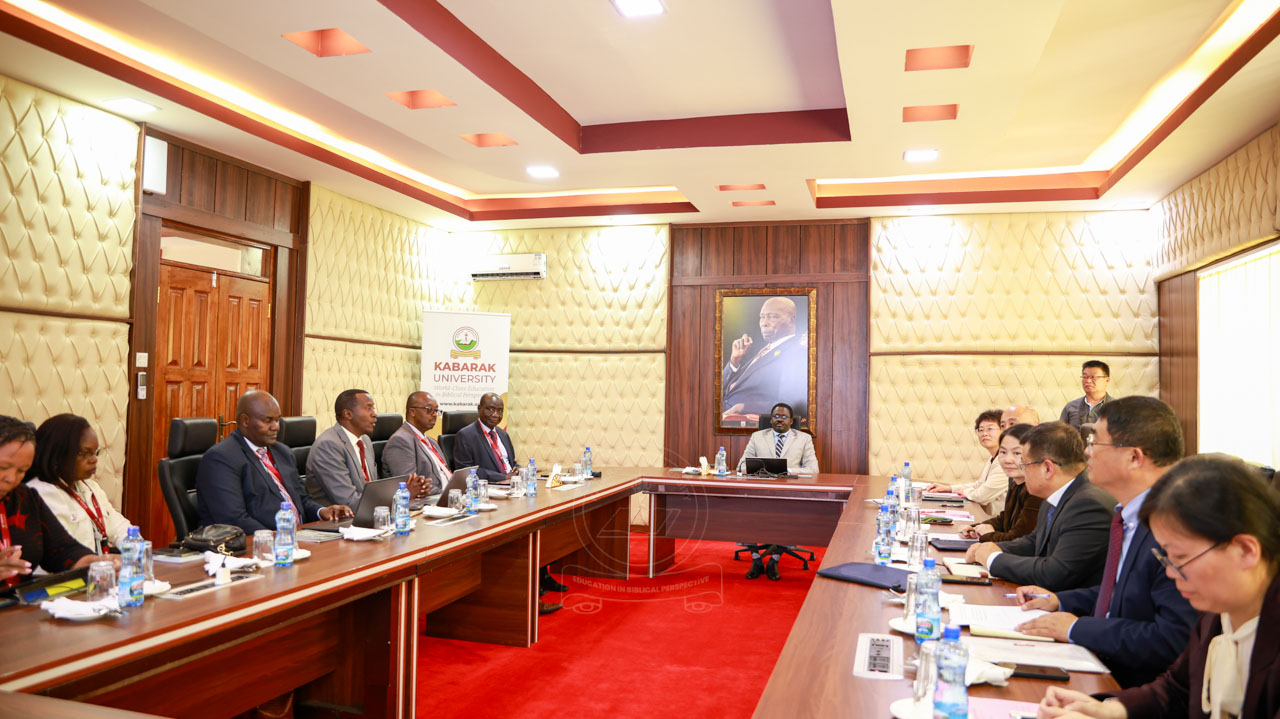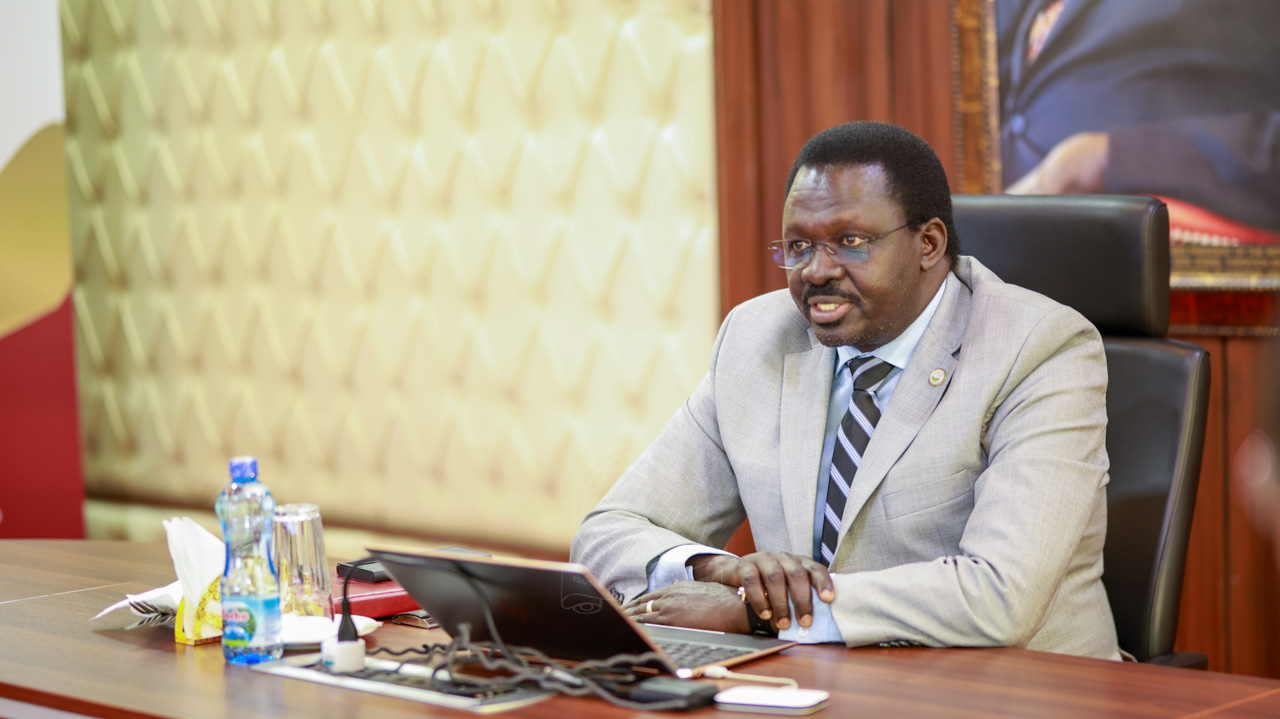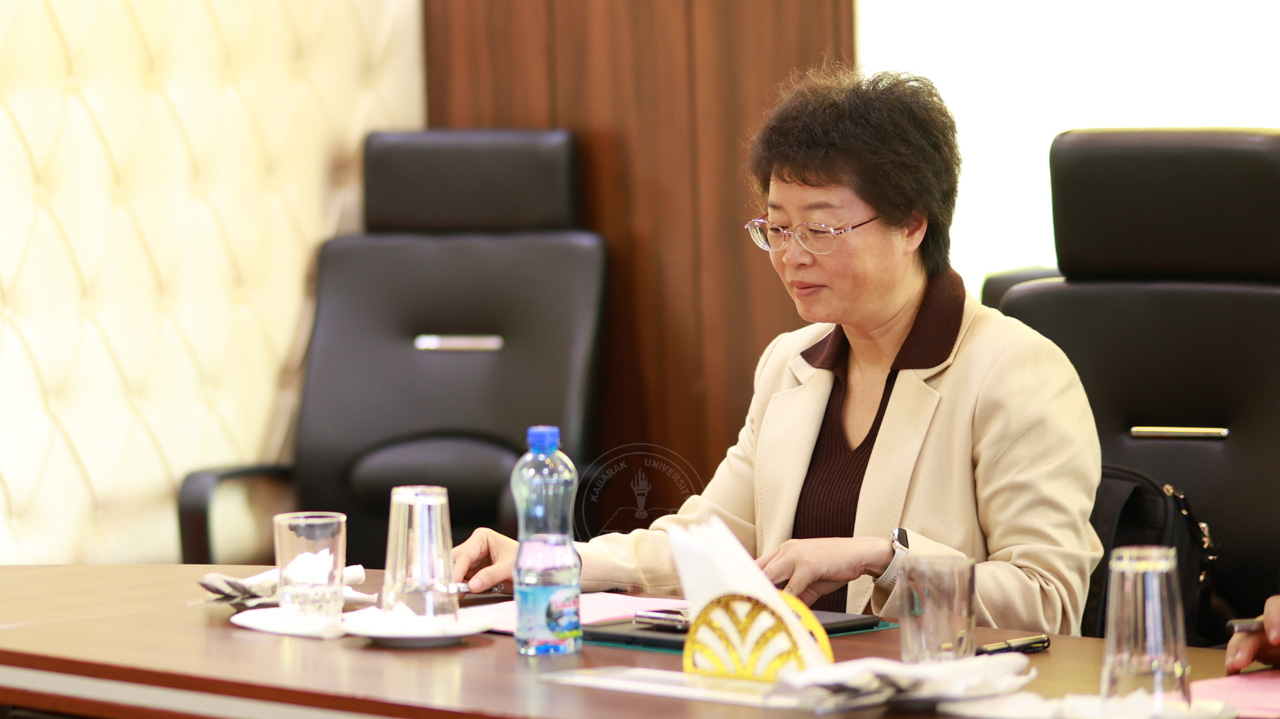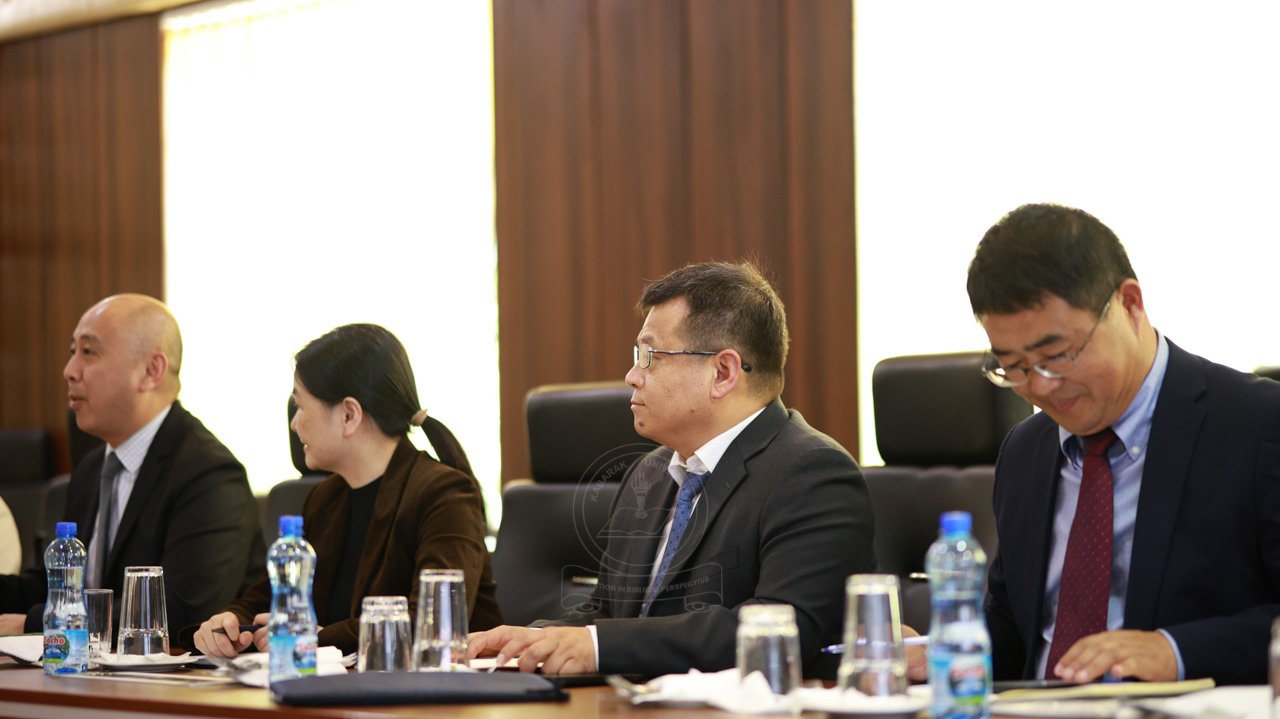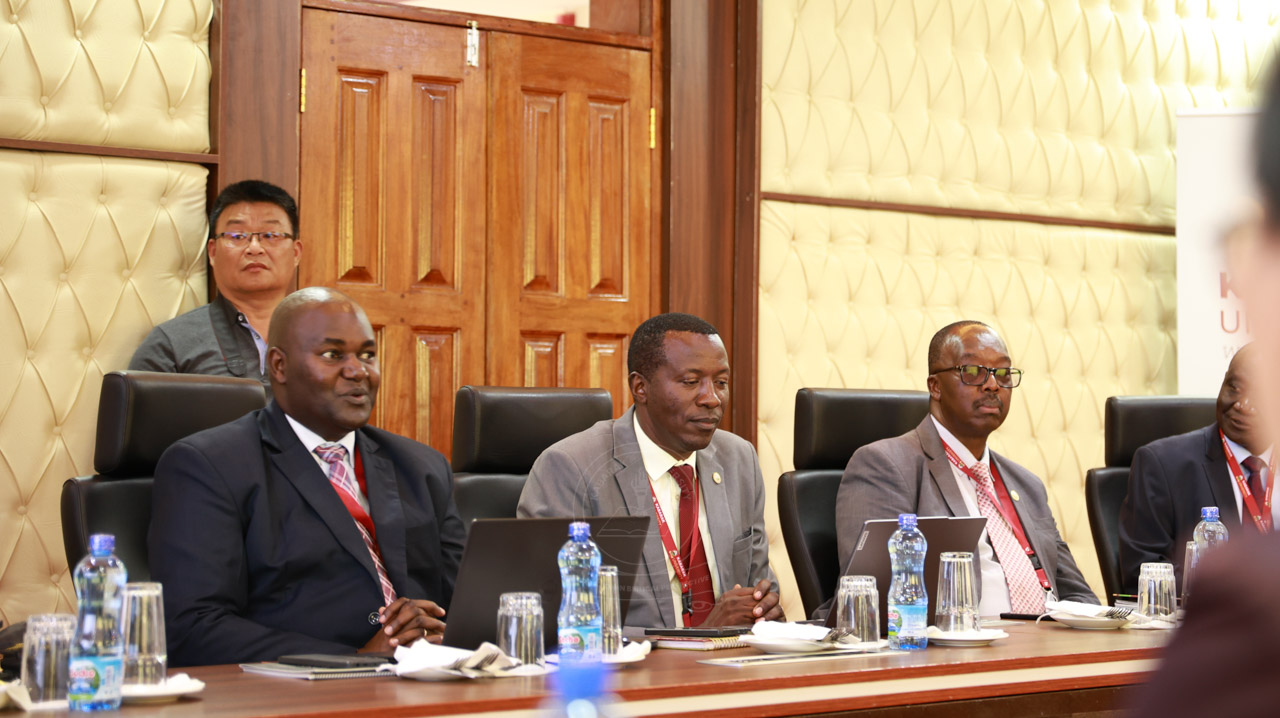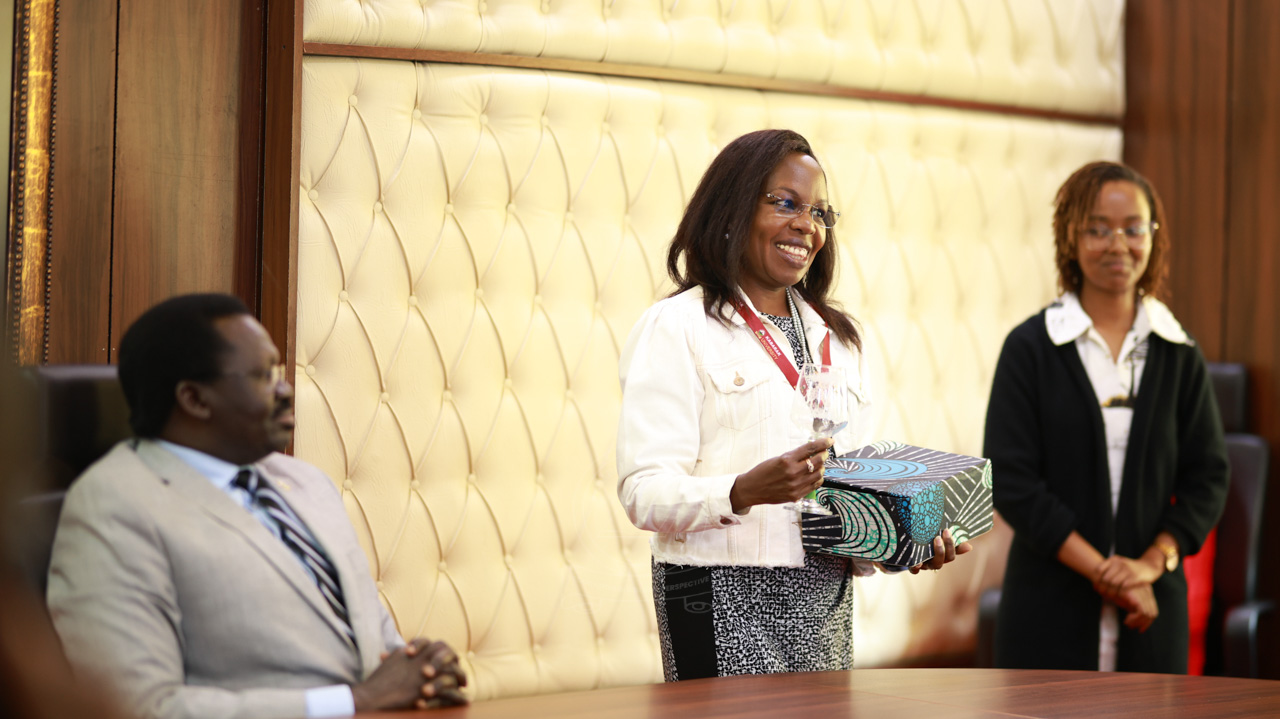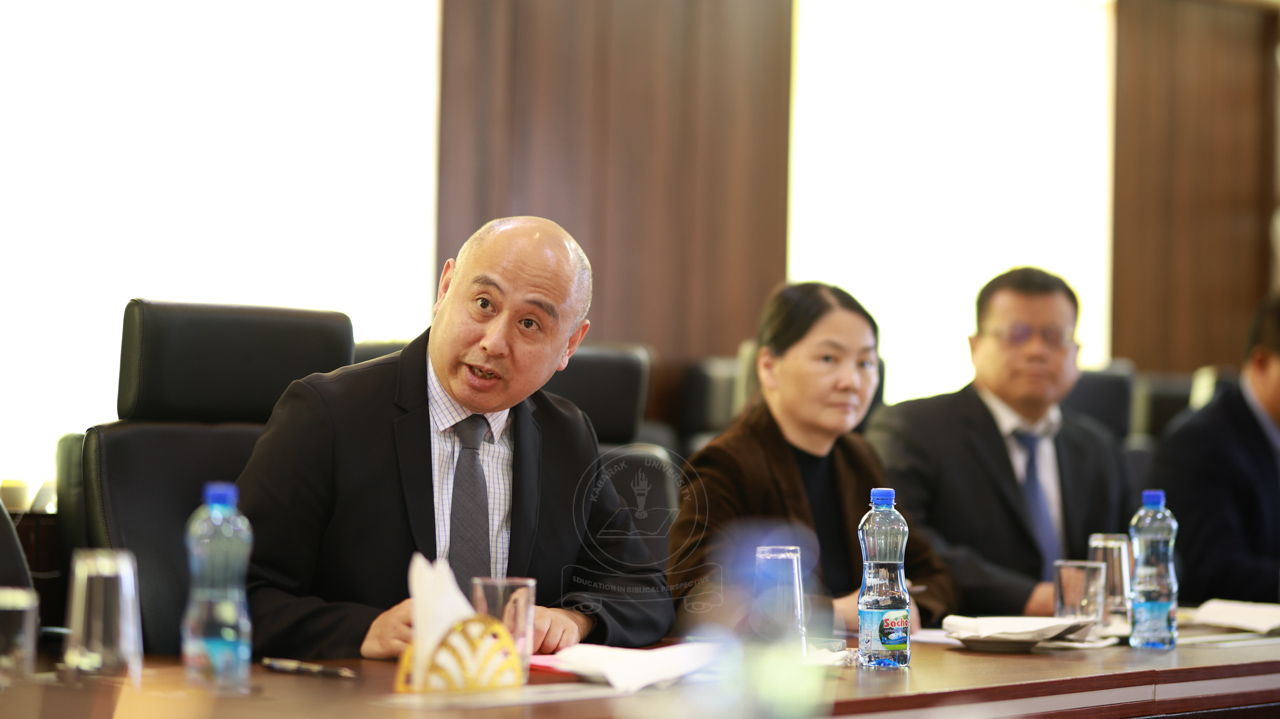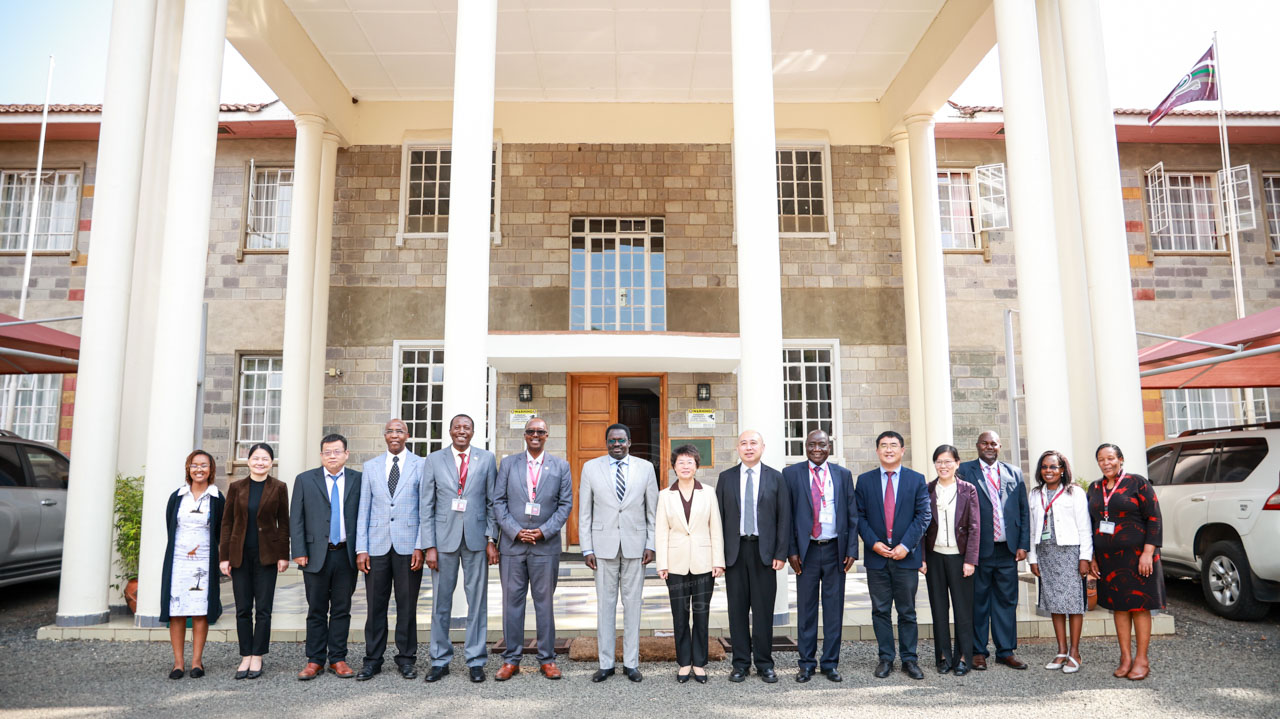The Vice-Chancellor, Prof. Henry K. Kiplangat, today hosted a distinguished delegation from Nanjing Agricultural University (NAU), People's Republic of China, for a high-level engagement aimed at strengthening academic cooperation and fostering strategic partnerships between the two institutions. The meeting, held at the University Boardroom, brought together members of the University Management Board (UMB) and the visiting team from NAU, led by Prof. ZHU Yan, Vice-President of Nanjing Agricultural University.
In his opening address, Prof. Henry K. Kiplangat, Vice Chancellor of Kabarak University, warmly welcomed the delegates and emphasized the significance of this growing partnership rooted in shared values of excellence in learning, research, innovation, and global impact.
Highlighting the achievements of the past year, Prof. Kiplangat celebrated several milestones achieved through the collaboration, including the successful rollout of a Chinese Language Teaching Program, participation in cultural competitions, and the awarding of Chinese government scholarships to Kabarak students for postgraduate studies in China. Notably, Kabarak co-hosted the launch and evaluation phase of the China International College Students Innovation Competition 2025 Africa Division, where four Kabarak student teams advanced to the final stage.
The Vice Chancellor proposed bold and visionary initiatives for further partnership, including:
- The establishment of an African Campus of NAU at Kabarak University to serve as a regional hub for academic and cultural preparation.
- The creation of a Confucius Classroom to enhance Chinese language education.
- Deployment of a visiting Professor of Agriculture to support curriculum development.
- Launch of a Faculty Exchange Program to foster research and cross-cultural learning.
These proposals aim to solidify a transformative relationship that aligns with global educational standards while advancing mutual goals in agriculture, food security, innovation, and cultural exchange.
As the session concluded, it was evident that Kabarak University continues to position itself as a globally engaged institution committed to nurturing talent, building strategic partnerships, and empowering students with the tools to transform societies.



